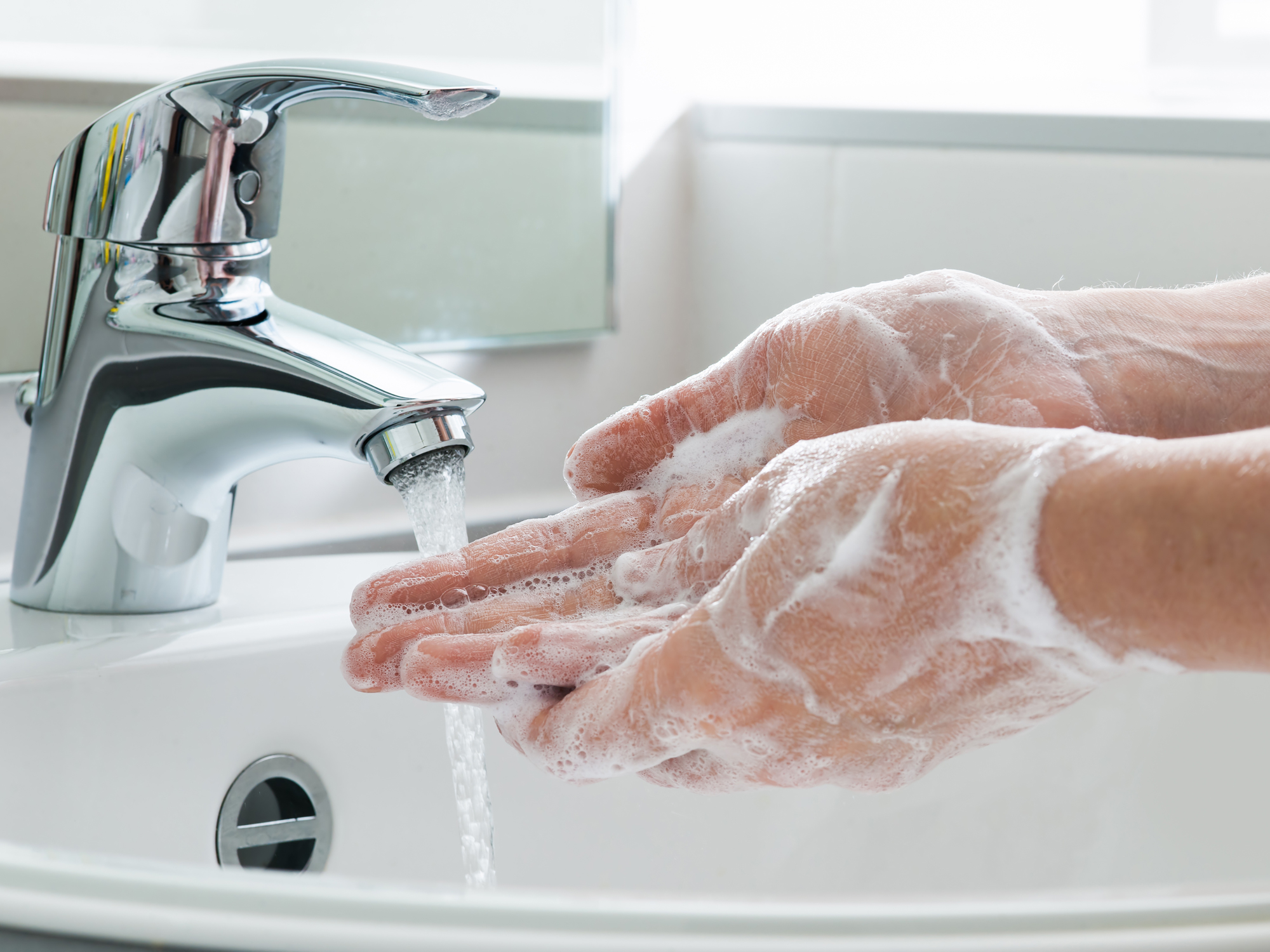Get Easy Health Digest™ in your inbox and don’t miss a thing when you subscribe today. Plus, get the free bonus report, Mother Nature’s Tips, Tricks and Remedies for Cholesterol, Blood Pressure & Blood Sugar as my way of saying welcome to the community!
The natural germ killer that can replace antibacterial soap

Triclosan, the main ingredient found in many antibacterial soaps and hand cleaners over the years, was finally banned by the FDA late last year.
And for good reason…
According to Dr. Robert H. Tukey, a professor in the departments of Chemistry and Biochemistry and Pharmacology at the University of California, San Diego School of Medicine, “If you have a damaged cell that’s been attacked by a mutagen, triclosan promotes the development of the tumor. The compound also causes inflammation, which means that all the ingredients necessary for developing cancer are present.”
Basically, that means that if you had any damage present in your body already and then used an antibacterial soap containing triclosan, you could end up with cancer. But the danger doesn’t stop there.
Multiple studies have linked triclosan to serious health problems, including:
- Thyroid dysfunction
- Endocrine disruption
- Inflammation — the root cause of most disease
But as antibacterial products begin slowly disappearing from store shelves, what are your choices for keeping a clean and germ-free body?
Germ-fighting plants
Fortunately, there is a natural solution available.
Since ancient times, people have used medicinal plants and their oils to treat wounds, various infections, and numerous ailments. Their antiseptic qualities have been studied in labs since the early 1900s.
One group of these plants and its associated oils contain an ingredient so effective, it could be part of the solution to today’s global epidemic of drug-resistant bacteria — and work like a broad-spectrum antimicrobial you can use in your home — without the fear of dangerous chemicals like triclosan.
The Labiatae family of plants, including oregano and thyme, contain a phenol called carvacrol. This potent germ fighter has been studied extensively for its antimicrobial qualities against pneumonia, E.coli, and even MRSA.
In fact, carvacrol is so effective one company was able to patent a special formulation using it to make natural antibacterial products.
It’s oregano, however, that contains the highest concentration of carvacrol. This phenol has even been tested as an antimicrobial agent in food to control:
- Staph
- Salmonella
- Listeria
- Cholera
So, knowing all of this, what is the best way to use the power of oregano in your own home to replace those dangerous anti-bacterial soaps?
Here’s the answer…
Oregano oil soap
There are a number of companies that already make soaps containing oregano oils, which for most people is much easier than making their own soaps at home. To find them, just type “oregano oil soap” into the search bar and go from there.
Most of these soaps are made using coconut oils, which also offers many benefits to your skin, making these a great choice.
In a pinch, you can even just add a few drops of oregano essential oil to a non-anti-bacterial soap you already have in your home to increase its germ-fighting power. As always, look for a certified organic essential oil to avoid any harmful chemicals or pesticides that could negatively impact your health.
Remember, triclosan is extremely dangerous to your health so if you have any old bottles of anti-bacterial soaps lurking in your home, throw them out today. Switch to oregano oil for a natural way to kill germs and keep yourself and your family healthy.
Easy Health Options tip: Basil also has strong antibacterial properties. A study in Food Microbiology has shown that washing produce in a mixture of just one percent basil oil was effective against Shigella, an infectious bacterium responsible for foodborne illnesses.












